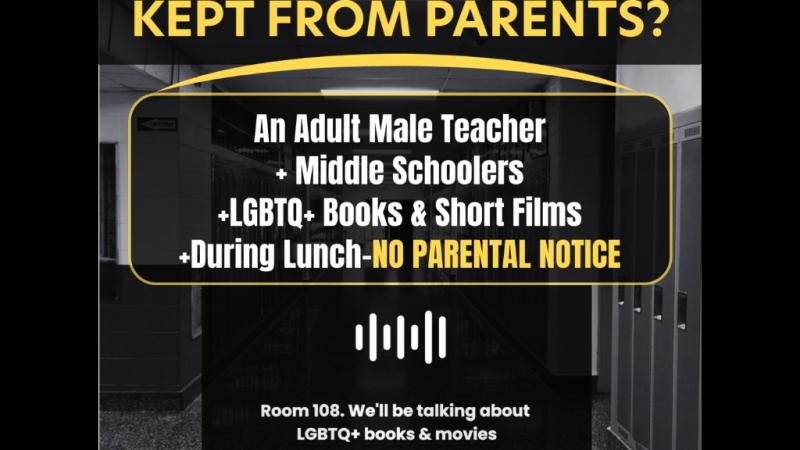Oops! I Did It Again: Media repeats Russia collusion mistakes
Prominent press outlets portray Trump, raid critics as threats to national security while reporting misleading information.
The mainstream media is portraying Donald Trump and those criticizing the FBI raid on his Mar-a-Lago estate in Florida as threats to U.S. democracy and national security, in some cases hastily reporting false or misleading information.
The news media's coverage of last week's raid has in key ways resembled how the press previously covered now-debunked allegations of collusion between Russia and the Trump campaign to sway the 2016 presidential election, with journalists seemingly trying to create a narrative of guilt to damage Trump politically before gathering all the facts.
CBS anchor Norah O'Donnell, for example, on Monday misleadingly implied that the Justice Department didn't take Trump's passports during the raid.
"According to a DOJ official," she tweeted, "the FBI is NOT in possession of former President Trump's passports."
O'Donnell later seemed to hedge, adding, "If any items not contained in the warrant were retrieved during the FBI search at Mar-a-Lago, they will be returned."
The tweets came after Trump said the FBI "stole" his three passports during the search of his Mar-a-Lago home.
Despite O'Donnell's reporting, sources told Just the News that the Justice Department informed Trump's team on Monday that agents took the former president's passports and are obligated to return them.
Trump spokesman Taylor Budowich responded to O'Donnell's posts by tweeting a screenshot of an email from an official in the Justice Department's National Security Division acknowledging the FBI seized the passports — "one being his active diplomatic passport" — from Mar-a-Lago and added they're being returned.
Trump confirmed their return on his Truth Social platform Tuesday evening.
O'Donnell's tweets reportedly irked other CBS journalists, who noted she attributed her information to only one anonymous source, while CBS News protocol is to confirm news with at least two people before reporting it as fact.
A CBS representative defended O'Donnell, telling the New York Post that O'Donnell was technically correct because the FBI no longer had Trump's passports at the time of her tweet. However, her tweet seemed to indicate the FBI never had the travel documents, and according to one CBS staffer, she didn't ask if they were ever in the bureau's possession.
As with O'Donnell and the passports, other journalists at some of the nation's most prominent media outlets have relied on anonymous sources, a hallmark of reporting on the Trump-Russia probe, framing the raid as based on the presence of classified materials at Mar-a-Lago that Trump illegally took with him after leaving the White House.
However, Trump's office told Just the News last week that the classified materials seized by the FBI were declassified under a "standing order" while he was president that allowed him to take sensitive documents to the White House residence at night to keep working.
Perhaps most striking, the Washington Post and others reported some of the classified documents sought by FBI agents related to nuclear weapons. But the Post's report noted its sources didn't offer specifics.
Following the Post story's publication, historian Michael Beschloss, a frequent guest on CNN and MSNBC, tweeted that the "Rosenbergs were convicted for giving U.S. nuclear secrets to Moscow, and were executed June 1953," appearing to float the idea of Trump being executed. Former CIA Director Michael Hayden, an adviser to Newsguard, which rates the reliability of news sources, quote-tweeted Beschloss, adding, "Sounds about right."
The Post noted in its story that its anonymous sources didn't provide specific details about what type of information the agents were seeking or if nuclear-related documents were recovered.
Nonetheless, CNN counterterrorism analyst Phil Mudd concluded on air that he wouldn't have had clearance to view the nuclear documents allegedly in Trump's possessions when he served in the CIA without elaborating.
In its coverage of the FBI raid, mainstream outlets have described Trump and his supporters as traitors posing an existential threat to the country, reminiscent of how they were characterized as Russian agents or stooges advocating authoritianism at home during the Trymp-Russia probe.
MSNBC host Jonathan Capehart, for example, asked if the country would "survive this" after his guest Beschloss claimed Republicans are threatening violence following the Mar-a-Lago search. Beschloss compared the current moment to combating fascism in the 1930s and enduring a civil war in the 1860s.
Another MSNBC host, Tiffany Cross, called Trump "a traitor to America" who has "no allegiance ... to this democracy," suggesting the documents at Mar-a-Lago indicate he might be "trafficking" nuclear secrets to Russia or Saudi Arabia.
CNN legal analyst Joey Jackson claimed an indictment of Trump is "imminent," arguing without evidence the documents recovered in the raid could prove him guilty in the Justice Department's criminal probe of the Jan. 6 Capitol riot.
The media has portrayed Trump's supporters and critics of the raid more generally as traitors and threats to public order.
Indeed, MSNBC's Joe Scarborough and the Washington Post's Dana Milbank compared those criticizing the FBI raid to "fascists" and "right-wing extremists," respectively. In one appearance last week, when MSNBC substitute host Jason Johnson asked Milbank if "this raid on [Trump's] home will lead to domestic violence, domestic terror," Milbank invoked the 1995 Oklahoma City bombing.
An armed man tried to breach an Ohio FBI office days after the raid, and a Pennsylvania man was arrested for allegedly making threats to the FBI.
However, several outlets have portrayed such cases as the norm, not the exception. NBC News, for example, reported Trump supporters are "agitating for civil war."
Breitbart News compiled a series of clips of reporters and news anchors citing "sources" saying extremists and QAnon conspiracy theorists have been the ones reacting negatively to the raid.
One area where there's a clear overlap between the media's coverage of the Trump-Russia probe and the FBI raid concerns search warrants. In each case, journalists pointed to the Justice Department getting a warrant as proof nothing was untoward.
"This was not a raid," CNN anchor Chris Wallace said on Friday. "This was a very carefully vetted search. They went to a judge. They got a search warrant. They went in. They apparently had notified the Secret Service at least an hour ahead of time. They specifically, reportedly, were concerned to do it when the former president was not on the premises, and went in and did it. They basically did it by the book."
The federal government infamously used the Steele dossier, which contained several salacious and since-debunked claims about Trump and his alleged ties to Russia, to obtain a Foreign Intelligence Surveillance Act (FISA) warrant to surveil onetime Trump campaign aide Carter Page in 2016.
Former Special Counsel Robert Mueller found no connection between Page and Russia's interference in the 2016 election. Justice Department Inspector General Michael Horowitz later concluded the FBI made numerous errors or omissions in its FISA applications.
These and other instances of the press rebuking Trump and his supporters and presenting false or misleading information show early echoes of the media's Trump-Russia coverage.
Throughout Trump's presidency, media outlets reported the collusion story on a daily basis, with the Washington Post and the New York Times even winning the Pulitzer Prize for their reporting on this issue.
In 2019, however, following a lengthy investigation, Mueller concluded that there was no evidence of Trump-Russia collusion, undermining the dominant claim made by journalists for the preceding two-plus years.
Journalist Glenn Greenwald compiled a list of some of the most egregious "media failures" of getting the facts wrong on the Trump-Russia story.















